Spotlight
A selection of stories from across the Federation
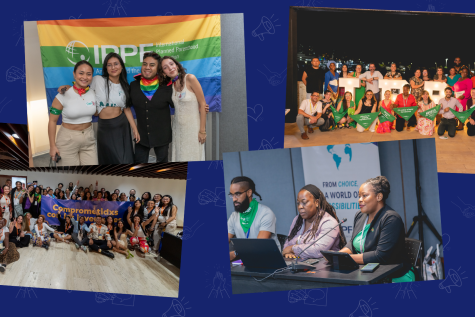
SRHR after Cartagena: the Pending Agenda for Population and Development
Our key highlights of the Conference on Population and Development 2024
Most Popular This Week
Brazil

The High-Level Political Forum: Let’s rewrite the rules
Haz click aquí para leer esta historia en español. The High-Level Political Foru
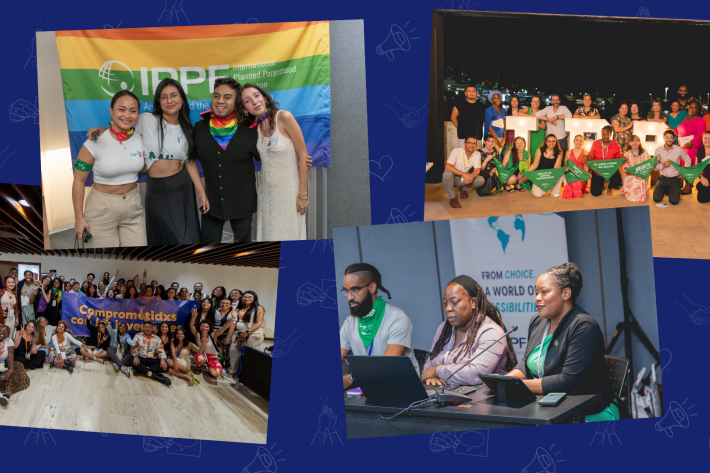
SRHR after Cartagena: the Pending Agenda for Population and Development
Haz click aquí para leer esta historia en espa
Americas & the Caribbean
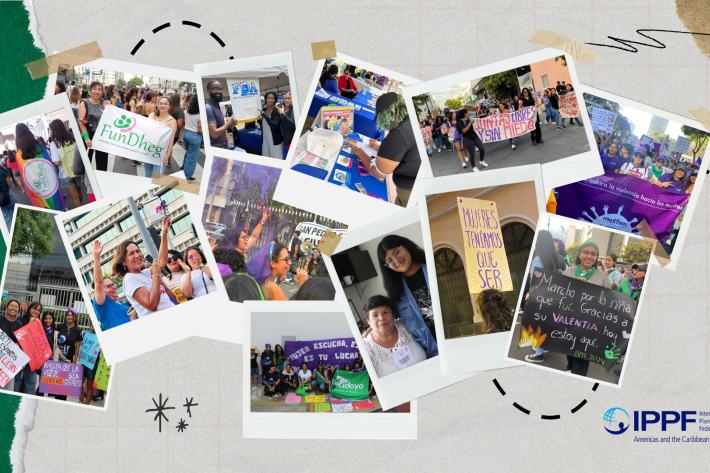
Trinidad and Tobago, Colombia, St Lucia

Revolutionizing CSE: Latin American and Caribbean Youth Leading the Charge!
Revolutionizing CSE: Latin American and Caribbean Youth Leading the Charge!
Jamaica
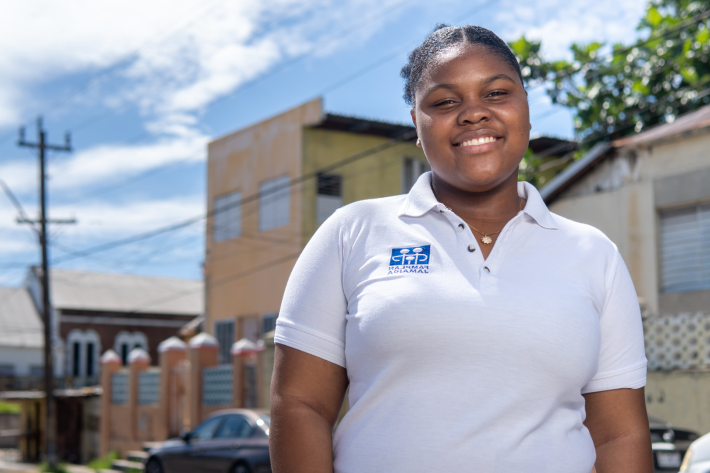
I’ve seen people become more aware and more careful.
Candice Taylor, 18, joined the Jamaica Family Planning Association (JFPA) Youth Advocacy Movement (YAM) at age 15 after youth officer Fiona Francis introduced her to the group.
Filter our stories by:

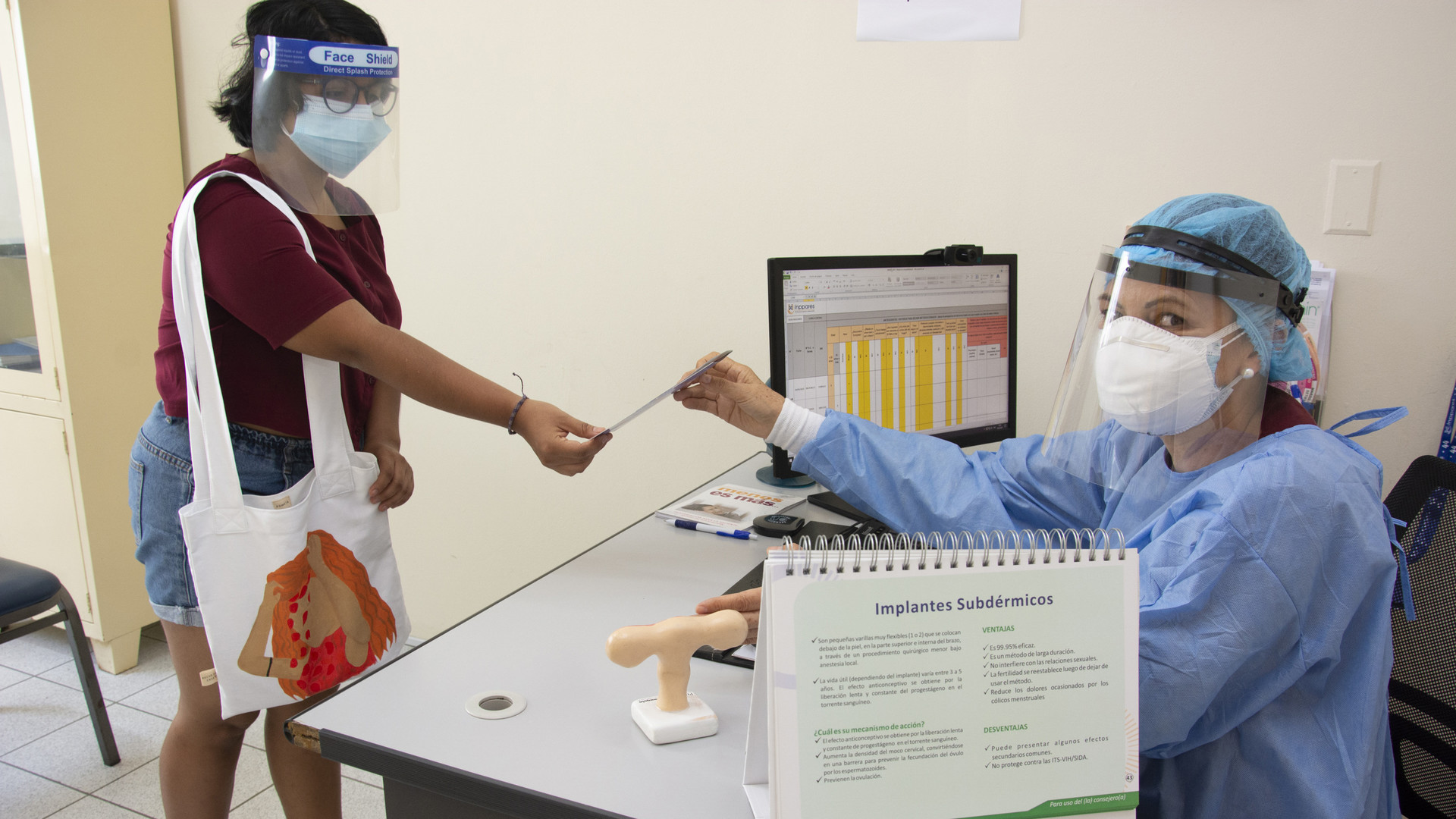
| 10 May 2021
Counseling in Sexual and Reproductive Health, a space where you can talk.
Leny de la Mata Aquino has been working at Inppares since 2003, after working in public health establishments in the highlands of Peru and moving to the capital. “I came to Inppares invited by a colleague and I liked that we were working on rights; it was an awakening in sexual health. Because, although it is true, I am an obstetrician, I had not been trained in sexual and reproductive health and rights. And I learned a lot,” she recalls. “I also liked the camaraderie and working in a small institution, we treated each other like family. I had many perspectives in the sense of knowing a different environment because I had worked in the provinces for a long time and the realities are completely different”, says Leny. From her work experience at Inppares, Leny de la Mata highly values the bond that is developed with the people who come to the services, which contributes a lot to an informed decision and a strengthening of self-care. “When you are close to people, you contribute a lot. As obstetricians, we dedicate ourselves to patients, we feel the many needs of users who come to the service, with many doubts regarding their sexual and reproductive health, with much ignorance of sexually transmitted diseases. Many people protect themselves from pregnancy, but not from STIs,” she says. As a counselor in sexual and reproductive health, Leny is aware of the importance that the empowerment of a women has on her body. “We also seek to empower women so they can recognize they have rights, which are above the decision of their partner. Before, couples had to consent to the choice of voluntary surgical intervention, but now it is not necessary and women have to make their own decisions. So far, we have users who ask their partners to determine a method of contraception, but we insist that the decision be made by her, we ask her: "What would you like?" It is important to empower them because sometimes the partner wants one thing and the woman wants another,” she says. In the day-to-day of counseling, Leny must also provide attention to cases surrounded by gender-based violence, which represents a very great challenge: “Machismo is cultivated since childhood. That, in some way, is making it difficult to correct some things so far, because it’s part of the culture transmitted from generation to generation”, she reflects. “Inppares services are comprehensive; in other places, the counseling focuses only on contraceptive methods because they only see it as family planning, but here the counseling is comprehensive; from the moment the patient is admitted, he or she comes as a whole person. If I find a problem that I cannot solve, we have other professionals who can provide care, that helps us to provide the care people need”, Leny concludes.

| 14 June 2025
Counseling in Sexual and Reproductive Health, a space where you can talk.
Leny de la Mata Aquino has been working at Inppares since 2003, after working in public health establishments in the highlands of Peru and moving to the capital. “I came to Inppares invited by a colleague and I liked that we were working on rights; it was an awakening in sexual health. Because, although it is true, I am an obstetrician, I had not been trained in sexual and reproductive health and rights. And I learned a lot,” she recalls. “I also liked the camaraderie and working in a small institution, we treated each other like family. I had many perspectives in the sense of knowing a different environment because I had worked in the provinces for a long time and the realities are completely different”, says Leny. From her work experience at Inppares, Leny de la Mata highly values the bond that is developed with the people who come to the services, which contributes a lot to an informed decision and a strengthening of self-care. “When you are close to people, you contribute a lot. As obstetricians, we dedicate ourselves to patients, we feel the many needs of users who come to the service, with many doubts regarding their sexual and reproductive health, with much ignorance of sexually transmitted diseases. Many people protect themselves from pregnancy, but not from STIs,” she says. As a counselor in sexual and reproductive health, Leny is aware of the importance that the empowerment of a women has on her body. “We also seek to empower women so they can recognize they have rights, which are above the decision of their partner. Before, couples had to consent to the choice of voluntary surgical intervention, but now it is not necessary and women have to make their own decisions. So far, we have users who ask their partners to determine a method of contraception, but we insist that the decision be made by her, we ask her: "What would you like?" It is important to empower them because sometimes the partner wants one thing and the woman wants another,” she says. In the day-to-day of counseling, Leny must also provide attention to cases surrounded by gender-based violence, which represents a very great challenge: “Machismo is cultivated since childhood. That, in some way, is making it difficult to correct some things so far, because it’s part of the culture transmitted from generation to generation”, she reflects. “Inppares services are comprehensive; in other places, the counseling focuses only on contraceptive methods because they only see it as family planning, but here the counseling is comprehensive; from the moment the patient is admitted, he or she comes as a whole person. If I find a problem that I cannot solve, we have other professionals who can provide care, that helps us to provide the care people need”, Leny concludes.

| 10 May 2021
Counseling in Sexual and Reproductive Health, a space where you can talk.
Leny de la Mata Aquino has been working at Inppares since 2003, after working in public health establishments in the highlands of Peru and moving to the capital. “I came to Inppares invited by a colleague and I liked that we were working on rights; it was an awakening in sexual health. Because, although it is true, I am an obstetrician, I had not been trained in sexual and reproductive health and rights. And I learned a lot,” she recalls. “I also liked the camaraderie and working in a small institution, we treated each other like family. I had many perspectives in the sense of knowing a different environment because I had worked in the provinces for a long time and the realities are completely different”, says Leny. From her work experience at Inppares, Leny de la Mata highly values the bond that is developed with the people who come to the services, which contributes a lot to an informed decision and a strengthening of self-care. “When you are close to people, you contribute a lot. As obstetricians, we dedicate ourselves to patients, we feel the many needs of users who come to the service, with many doubts regarding their sexual and reproductive health, with much ignorance of sexually transmitted diseases. Many people protect themselves from pregnancy, but not from STIs,” she says. As a counselor in sexual and reproductive health, Leny is aware of the importance that the empowerment of a women has on her body. “We also seek to empower women so they can recognize they have rights, which are above the decision of their partner. Before, couples had to consent to the choice of voluntary surgical intervention, but now it is not necessary and women have to make their own decisions. So far, we have users who ask their partners to determine a method of contraception, but we insist that the decision be made by her, we ask her: "What would you like?" It is important to empower them because sometimes the partner wants one thing and the woman wants another,” she says. In the day-to-day of counseling, Leny must also provide attention to cases surrounded by gender-based violence, which represents a very great challenge: “Machismo is cultivated since childhood. That, in some way, is making it difficult to correct some things so far, because it’s part of the culture transmitted from generation to generation”, she reflects. “Inppares services are comprehensive; in other places, the counseling focuses only on contraceptive methods because they only see it as family planning, but here the counseling is comprehensive; from the moment the patient is admitted, he or she comes as a whole person. If I find a problem that I cannot solve, we have other professionals who can provide care, that helps us to provide the care people need”, Leny concludes.

| 14 June 2025
Counseling in Sexual and Reproductive Health, a space where you can talk.
Leny de la Mata Aquino has been working at Inppares since 2003, after working in public health establishments in the highlands of Peru and moving to the capital. “I came to Inppares invited by a colleague and I liked that we were working on rights; it was an awakening in sexual health. Because, although it is true, I am an obstetrician, I had not been trained in sexual and reproductive health and rights. And I learned a lot,” she recalls. “I also liked the camaraderie and working in a small institution, we treated each other like family. I had many perspectives in the sense of knowing a different environment because I had worked in the provinces for a long time and the realities are completely different”, says Leny. From her work experience at Inppares, Leny de la Mata highly values the bond that is developed with the people who come to the services, which contributes a lot to an informed decision and a strengthening of self-care. “When you are close to people, you contribute a lot. As obstetricians, we dedicate ourselves to patients, we feel the many needs of users who come to the service, with many doubts regarding their sexual and reproductive health, with much ignorance of sexually transmitted diseases. Many people protect themselves from pregnancy, but not from STIs,” she says. As a counselor in sexual and reproductive health, Leny is aware of the importance that the empowerment of a women has on her body. “We also seek to empower women so they can recognize they have rights, which are above the decision of their partner. Before, couples had to consent to the choice of voluntary surgical intervention, but now it is not necessary and women have to make their own decisions. So far, we have users who ask their partners to determine a method of contraception, but we insist that the decision be made by her, we ask her: "What would you like?" It is important to empower them because sometimes the partner wants one thing and the woman wants another,” she says. In the day-to-day of counseling, Leny must also provide attention to cases surrounded by gender-based violence, which represents a very great challenge: “Machismo is cultivated since childhood. That, in some way, is making it difficult to correct some things so far, because it’s part of the culture transmitted from generation to generation”, she reflects. “Inppares services are comprehensive; in other places, the counseling focuses only on contraceptive methods because they only see it as family planning, but here the counseling is comprehensive; from the moment the patient is admitted, he or she comes as a whole person. If I find a problem that I cannot solve, we have other professionals who can provide care, that helps us to provide the care people need”, Leny concludes.









